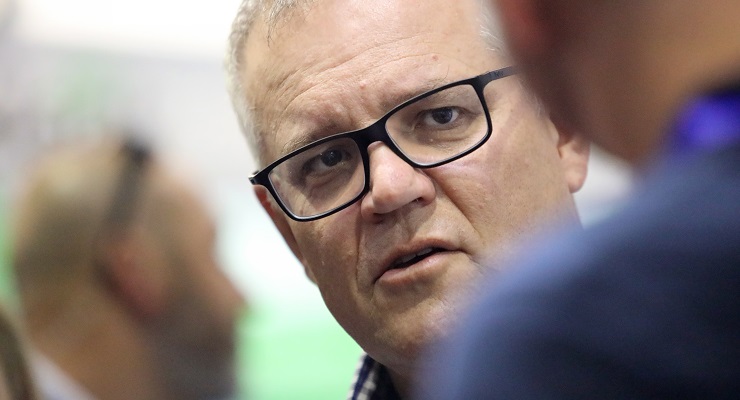
One of the most important and potentially divisive issues in the transition to “living with COVID” is the willingness of businesses outside the immediate health and caring professions to require their workers to be vaccinated.
Food manufacturer SPC decided to take the lead with a vaccine mandate to come into force over the next two months for its workers. Its legal authority to do that, however, is contested, and there’s no clear advice from the Fair Work Commission or Safe Work Australia. Safe Work Australia tells employers: “You must do all that is reasonably practicable to minimise this risk and vaccination should be considered as one way to do so in the context of a range of COVID-19 control measures” but “it is unlikely that a requirement for workers to be vaccinated will be reasonably practicable”.
As Crikey forecast — albeit in a much shorter timeframe than we expected — businesses are calling for clarification by the government on what they rightly term a “grey area”. The SPCs of the industry can afford litigation brought by workers or unions, but smaller firms can’t, and need something a bit better than “is unlikely”.
The prime minister had an opportunity to provide that clarity yesterday after he was invited to reflect on SPC and the issue of mandating vaccines. In response he offered this all-you-can-eat word salad:
People will make a choice to get vaccinated or not vaccinated. Businesses have to make choices. And on SPC, you’ve indicated, the choice that they’ve been making, Qantas have been making similar noises about the choices they’ll be making, about how they run their business, because remember that in a business, that business at the end of the day will bear the costs of having to do the cleaning down the facilities and the various other things that could happen as a result of an outbreak or or something like that of that nature in their premises. So I understand businesses looking to make choices. Now the legal basis for that, I’m sure they’ve taken advice about that. And that could be, that that will be an issue that we watch very closely. So where people are taking decisions that they believe are dealing with their concerns and their interests, then that’s something that the Coalition governments, Liberal governments have always been supportive of. But that’s always subject to the rule of law.
The appropriate response from business to this would be: “FFS!”
“That could be, that that will be an issue that we watch very closely,” says Morrison, as if he weren’t prime minister and makes the legislative framework for industrial relations. As if he gets to determine what the rule of law means in these circumstances. Morrison promises to hit the ground watching on one of the most important economic and health issues of the next six to 12 months. It’s almost as if Morrison wanted to confirm the stereotype of him as a man incapable of providing leadership.
It’s true that Morrison is somewhat stymied by the horse-punchers in his party room who invoke Nazi Germany at the first mention of vaccine passports. But that’s, erm, what leadership is supposed to be: persuading people of different views to cooperate, or minimising the capacity for disruption of those who won’t.
But clearly Morrison is so worried about the possibility of becoming a minority government that he won’t do anything to upset his noisier, and generally rather noisome, backbenchers. Andrew Laming is allowed to flout Morrison’s demands with impunity; George “I swear I will cross the floor and this time I really really mean it” Christensen can undermine virus suppression efforts without censure.
These don’t have much impact in the real world. Morrison’s refusal to provide leadership on vaccine mandates, however, is making an already difficult time for business even more challenging. The prime minister needs to get off his arse, stop watching and worrying about his backbench, and start leading for the sake of business.








Crikey is committed to hosting lively discussions. Help us keep the conversation useful, interesting and welcoming. We aim to publish comments quickly in the interest of promoting robust conversation, but we’re a small team and we deploy filters to protect against legal risk. Occasionally your comment may be held up while we review, but we’re working as fast as we can to keep the conversation rolling.
The Crikey comment section is members-only content. Please subscribe to leave a comment.
The Crikey comment section is members-only content. Please login to leave a comment.